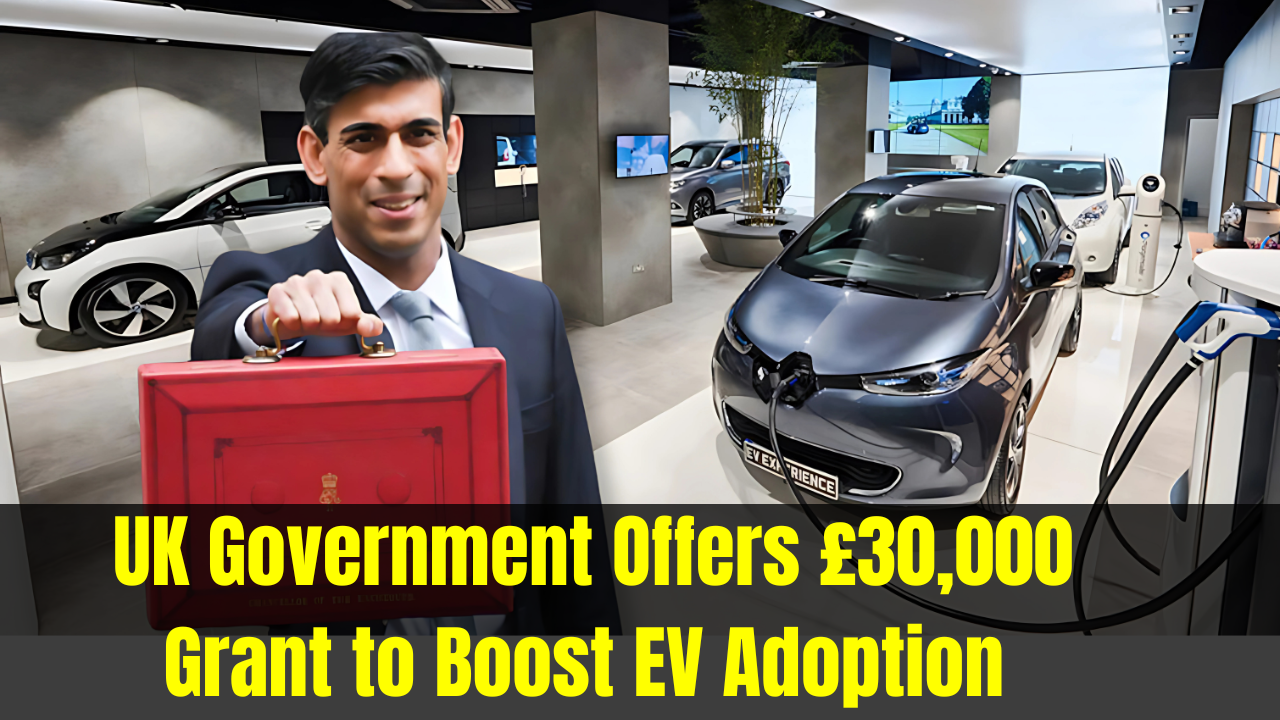The transition to electric vehicles (EVs) is a cornerstone of the UK’s strategy to reduce greenhouse gas emissions and combat climate change. With domestic transport responsible for 99 million tonnes of CO₂ equivalent annually—91% of which comes from road travel—government initiatives are essential to encourage the switch from petrol and diesel cars to cleaner alternatives1. To support this shift, the UK government offers a range of grants, incentives, and schemes designed to make electric cars more accessible and affordable for individuals and businesses alike.
Current Government Schemes for Electric Cars
1. Electric Vehicle Chargepoint Grant (EVCG)
The Electric Vehicle Chargepoint Grant (EVCG) is available until 31st March 2026 and is designed to help people living in flats or rented properties access EV charging. It replaced the previous Electric Vehicle Homecharge Scheme (EVHS) in April 2022.
-
Flat Owners & Renters: Up to £350 per socket for installing a charge point.
-
Residential Landlords: Up to £350 per socket for properties they own or manage but do not live in.
-
Residential Carparks: Up to £30,000 for infrastructure needed to install multiple charge points in communal parking areas.
2. Workplace Charging Scheme (WCS)
The Workplace Charging Scheme (WCS) is a voucher-based initiative for businesses, charities, and public sector organisations. It covers up to 75% of the cost of purchasing and installing EV charge points, with a cap per socket.
-
Eligibility: Registered businesses, charities, or public sector organisations with dedicated off-street parking and a current or future need for EV charging.
-
Requirements: Must own the premises or have landlord permission, and use an OZEC-approved installer.
3. Local Electric Vehicle Infrastructure (LEVI) Funding
The LEVI fund supports local authorities in England to plan and deliver charging infrastructure for residents without off-street parking.
-
Purpose: To improve the deployment of on-street charging and invest in local charging infrastructure.
-
Eligibility: Tier-one local authorities or combined authorities in England.
-
Funding Structure: Includes capital funding for installation and capability funding for planning and implementation.
Tax Incentives for Electric Cars
Vehicle Excise Duty (VED) and Benefit-in-Kind (BiK) Rates
-
VED: From April 2025, zero-emission vehicles will pay a minimal first-year rate of £10 until 2029-30. Hybrids and higher-emission vehicles will face increased rates.
-
BiK: Company car drivers benefit from low BiK rates for EVs, starting at 2% for 2024/25 and rising gradually to 9% by 2029-30.
Salary Sacrifice Schemes
Salary sacrifice schemes allow employees to lease an electric car through their employer, paying from their gross salary (before tax), which can reduce monthly costs by 20-50%.
-
Example: The monthly cost of an MG4 Trophy Long Range could drop from £431 to £290 after tax and national insurance savings.
-
Benefits: Lower maintenance and running costs, and alignment with corporate social responsibility goals.
Several grants have now closed but played a significant role in boosting EV adoption:
-
Plug-In Car Grant: Provided up to £1,500 off the purchase price of an EV, supporting nearly half a million vehicles before ending in June 2022.
-
On-Street Residential Chargepoint Scheme (ORCS): Funded 8,354 public charging devices across 146 councils before closing to new applicants.
-
Electric Vehicle Homecharge Scheme (EVHS): Installed over 340,000 domestic charging devices before being replaced by the EVCG.
Opportunities for Improvement
While current schemes are effective, there are areas for further development:
-
Consistent Policies: Government priorities and industry influence can lead to policy shifts, such as changes to the ban on new petrol and diesel cars.
-
Accessibility: Ensuring grants benefit all income levels is crucial, as the upfront cost of EVs remains a barrier for some.
-
Infrastructure Expansion: Continued investment in charging infrastructure is essential for widespread EV adoption.
-
Support for Used EVs: Expanding incentives to include used electric cars could make them more accessible to the average consumer.
| Scheme Name | Who is Eligible? | Grant Amount/Support | Key Dates/Deadlines |
|---|---|---|---|
| Electric Vehicle Chargepoint Grant | Flat owners, renters, landlords | Up to £350 per socket, £30k for carparks | Until 31 Mar 2026 |
| Workplace Charging Scheme | Businesses, charities, public sector | Up to 75% of installation cost | Ongoing |
| LEVI Funding | Local authorities (England) | Capital & capability funding | Funding tranches (see above) |
| Plug-In Car Grant (expired) | EV buyers | Up to £1,500 per vehicle | Ended June 2022 |
| ORCS (expired) | Local authorities | Up to 75% of installation | Ended for new applicants |
| EVHS (expired) | Homeowners | Up to £350 per installation | Ended Apr 2022 |
Key Benefits of Switching to Electric Cars
-
Lower Running Costs: EVs have fewer moving parts, meaning less maintenance and lower repair costs.
-
Tax Savings: Favorable VED and BiK rates make EVs more affordable for individuals and businesses.
-
Environmental Impact: Reduced emissions and improved air quality contribute to national climate goals.
How to Apply for Electric Car Grants
-
Check Eligibility: Review the criteria for each grant or scheme.
-
Gather Documentation: Prepare proof of residence, ownership, or business registration as required.
-
Submit Application: Apply through the official government or scheme websites.
-
Use Approved Installers: Ensure installations are carried out by certified professionals.
FAQs
Q: Who is eligible for the Electric Vehicle Chargepoint Grant?
A: Flat owners, renters, and landlords who do not live in the property are eligible for up to £350 per socket.
Q: Can businesses get support for installing EV chargers?
A: Yes, through the Workplace Charging Scheme, businesses can receive vouchers covering up to 75% of installation costs.
Q: Are there still grants for buying new electric cars?
A: The Plug-In Car Grant has ended, but salary sacrifice and tax incentives remain to make EVs more affordable.
The UK government offers a comprehensive suite of grants, incentives, and schemes to support the transition to electric vehicles. From charge point grants for flats and businesses to salary sacrifice schemes and tax incentives, these initiatives make EVs more accessible and affordable for a wide range of consumers. Continued investment and policy consistency will be key to achieving the UK’s ambitious climate goals.
Also Read:- Good News for E-Bike Buyers in Sydney Govt Offers Fresh Subsidies & Incentives

